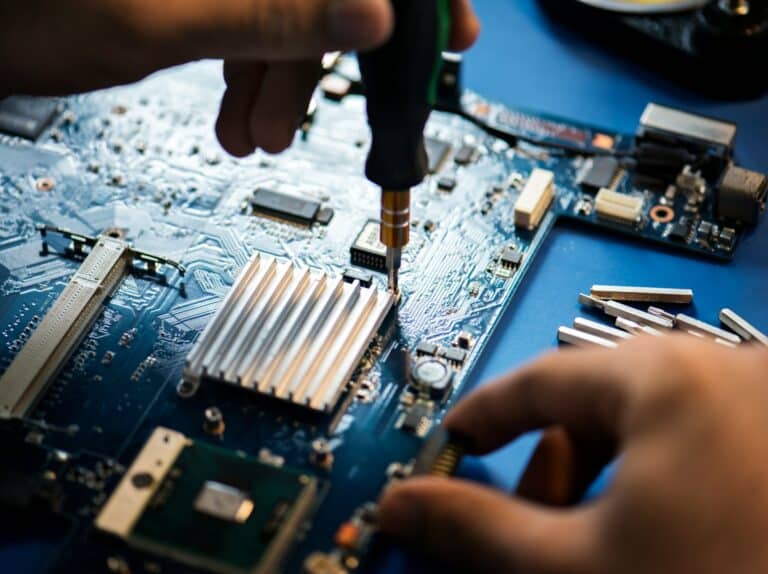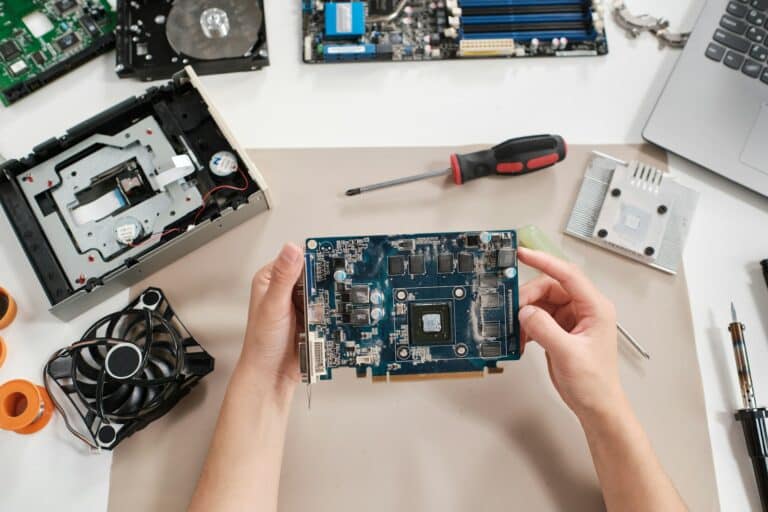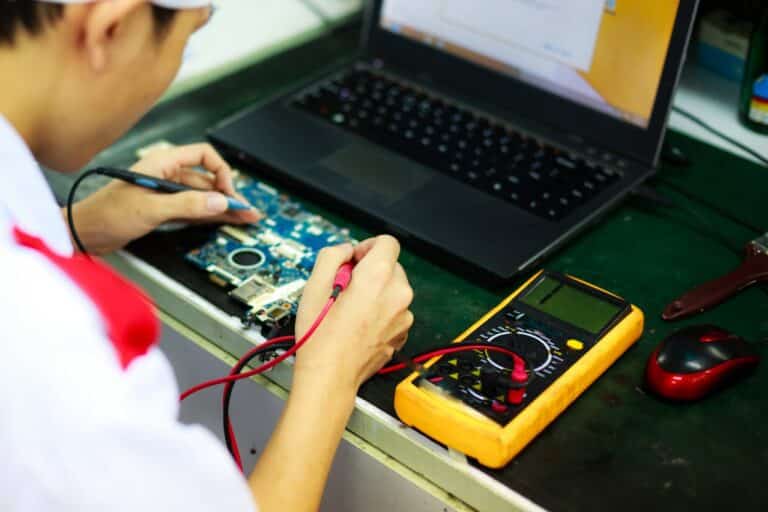Electronics recycling is all about smarter disposal choices for the gadgets we rely on every day. With technology advancing rapidly, our devices become outdated quickly, creating a pile-up of electronics waiting to be responsibly discarded. Understanding electronics recycling can help prevent these tools from ending up in landfills, where they can pose environmental hazards. For those living in Augusta, Columbus, Macon, and Savannah, embracing electronics recycling doesn’t just mean cleaning up your space—it’s an important step in protecting the local environment.
In these vibrant communities, electronics recycling offers a way to repurpose valuable materials and reduce electronic waste. By learning the basics, residents can contribute to a cleaner future while keeping their surroundings safe and sustainable. Whether it’s an old computer or a smartphone that’s seen better days, knowing how to recycle electronics effectively helps everyone make a positive impact.
What is Electronics Recycling?
Think of electronics recycling as the responsible way to retire your old gadgets. Simply put, it’s the process of collecting electronic devices that are no longer in use, and breaking them down to salvage useful components. This process ensures that materials like metals and plastics find new life in other products, reducing the need for new raw materials.
Here’s how it usually works:
1. Collection: Devices are gathered from homes, businesses, or designated drop-off points.
2. Sorting and Disassembly: The collected items are sorted, and parts like circuit boards, batteries, and screens are carefully removed.
3. Processing: The materials are then processed to extract valuable resources. For example, metals are melted down, while plastics are ground into pellets.
4. Reuse and Repurpose: Finally, these materials can be reused in manufacturing new products, closing the loop and keeping waste out of landfills.
In an electronic-filled world, recycling is like a smart clean-up crew for your tech collection. With a better understanding of electronics recycling, residents in Augusta, Columbus, Macon, and Savannah can play a crucial role in conserving resources and ensuring a healthier planet.
Why Is Electronics Recycling Important?
Electronics recycling is pivotal for protecting our environment and making the most out of the materials we already have. When we recycle these gadgets, we prevent harmful substances like lead and mercury from seeping into soil and water. This means safer drinking water and healthier soils for our communities to thrive. Recycling electronics is key to resource conservation. Devices are full of precious metals like gold, silver, and copper. By reclaiming these materials, we decrease the demand for new mining activities, which can be energy-intensive and environmentally damaging.
Reducing electronic waste also has a direct impact on the volume of items that end up in landfills. This makes room for non-recyclable waste and lessens the burden on waste management systems. By participating in electronic recycling, residents in Augusta, Columbus, Macon, and Savannah help shape a future with less pollution and more sustainable resource use.
How to Recycle Electronics in Your Area
Getting started with electronics recycling in your area is easier than you might think. Here’s a simple guide to help you take the first steps:
1. Identify the Electronics to Recycle: Check what devices are no longer in use or cannot be repaired. Common items include old phones, tablets, computers, and accessories like chargers and cables.
2. Find a Local Recycling Center: In Augusta, Columbus, Macon, and Savannah, many centers accept electronic waste. An easy online search or a quick call can point you to the nearest location.
3. Prepare Your Electronics: Before dropping them off, ensure you’ve removed all personal data. Use factory reset options or special data-wiping software for extra security.
4. Understand What’s Accepted: Most recycling centers accept a broad range of electronics, but it’s good to check beforehand. Commonly accepted items are computers, monitors, printers, and related components.
5. Drop Off Your Electronics: Visit the recycling center with your prepared items. Some centers offer specific days for electronic waste collection, so be sure to verify operating hours.
Common Myths About Electronics Recycling
Several myths can discourage people from participating in electronics recycling. Let’s clear up these misconceptions:
– Myth 1: Electronics Recycling is Inconvenient: With an increasing number of recycling centers, it’s becoming more accessible. Many places even offer pick-up services for larger items.
– Myth 2: Personal Data Cannot be Securely Erased: Advanced data-wiping methods are available to ensure your information stays private, making the process secure.
– Myth 3: All Electronic Waste Ends Up in Landfills Anyway: Strict regulations guide certified recyclers to responsibly break down and repurpose parts, ensuring minimal landfill contributions.
By debunking these myths, we encourage more residents to participate actively. Knowing the truth about recycling benefits everyone and makes our communities stronger and more environmentally conscious.
Wrap-Up and Call to Action
Electronics recycling represents a significant step toward a sustainable future. By understanding its impact, we can all contribute to a cleaner environment. From rediscovering valuable materials to protecting our natural resources, recycling helps build sustainable practices for generations. The choice to recycle electronics is empowering—it’s about embracing responsibility and making simple, everyday decisions that matter. Start today by decluttering your space and participating in community recycling efforts, knowing you’re making a positive impact in Augusta, Columbus, Macon, and Savannah.
Make your contribution to a more sustainable future by discovering how you can streamline your efforts in electronics recycling. By visiting Beyond Surplus, you’ll find valuable resources and expert guidance to help you recycle efficiently. Embrace responsible disposal and join us in protecting our planet.


